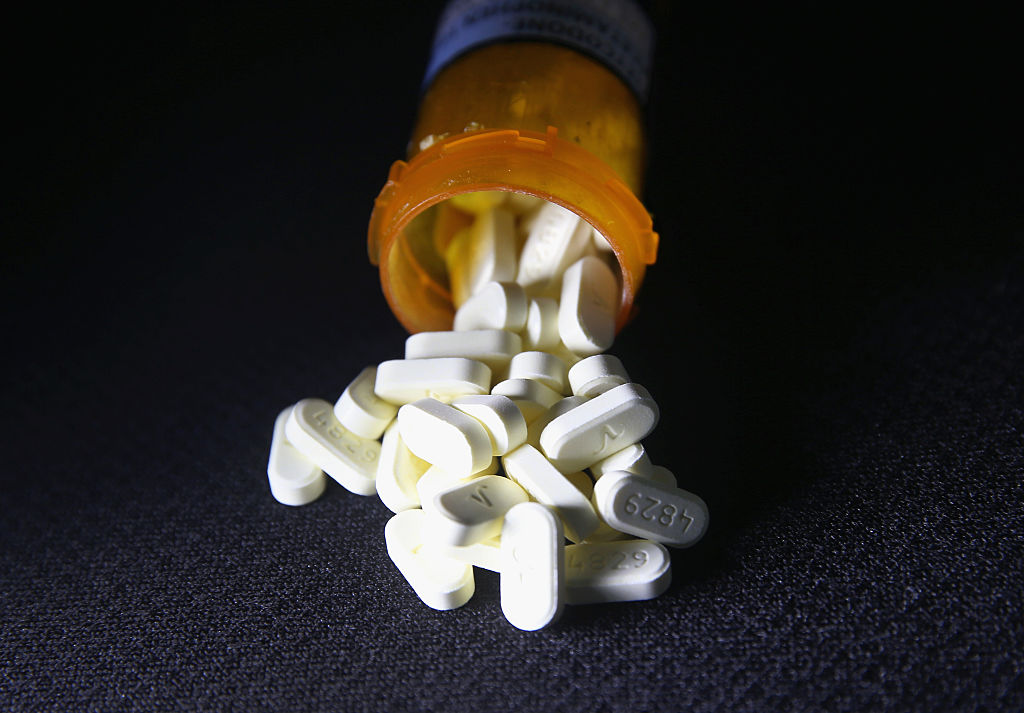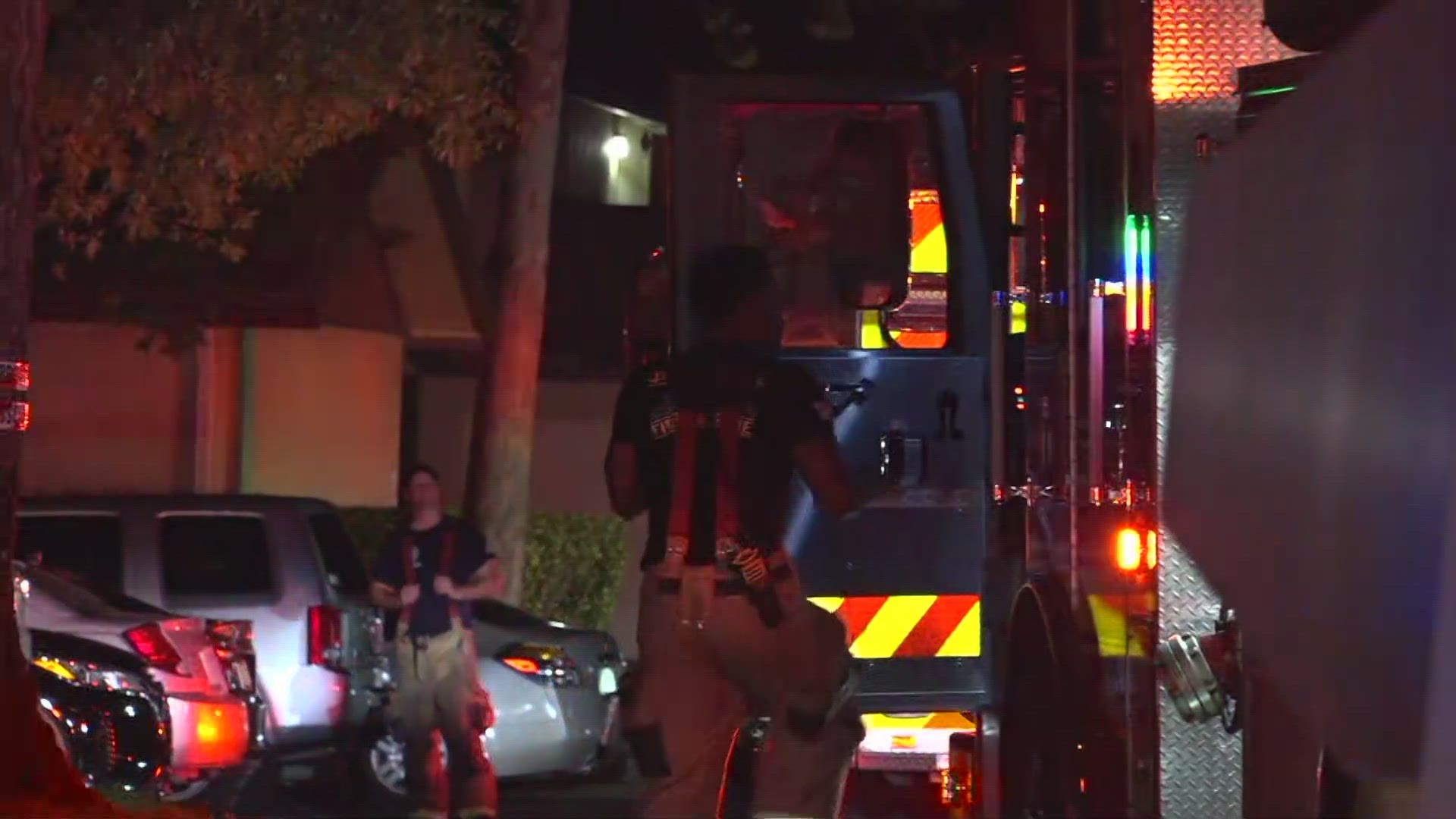JACKSONVILLE, Fla. – With months of planning behind it, a nearly $1.5 million pilot program aimed at fighting the opioid epidemic in Duval County is ready to begin following the mayor’s final approval of contracts earlier this week.
Jacksonville Mayor Lenny Curry finished signing contracts outlined in Ordinance 2017-426-E Thursday, officially executing an agreement between the Opioid Epidemic Pilot Program partners: St. Vincent’s HealthCare, River Region Human Services, Gateway Community Services and UF Health Jacksonville.
“I think we’ve dotted as many i’s and crossed as many t’s as we can,” said Raymond Pomm, vice president of Medical Services at River Region Human Services. “We are basically ready to go.”
As program chairman, Pomm announced to council members during a special committee meeting Tuesday he believes the pilot could be ready to present preliminary data to the Jacksonville Fire and Rescue Department within a week of commencing treatment.
“Once we start, we are going to be collecting data on a daily basis,” Pomm said. “We are going to be reporting back through JFRD on a weekly basis, who will then be reporting to the council members on a monthly basis.”
The program is expected to keep track of data acquired from overdose patients brought to the emergency room at St. Vincent’s HealthCare. River Region Human Services and Gateway Community Services are participating partners in this pilot that will provide targeted treatment programs for specific patients dealing with opioid addiction.
Both treatment centers will provide 10 new inpatient beds dedicated to those who are selected for the pilot program and chose to participate. Inpatient services will be provided for an abbreviated period “in an effort to increase capacity and serve more patients,” according to the program’s scope of services.
Pomm said he wants to see if shortened residential treatment coupled with a “synchronous outpatient component” can yield the same positive results as long-term residential treatment, which requires more bed space.
“Now, this might turn the treatment community on its head,” Pomm said. “But I think it’s important information to take a look at, because if we’re not going to get increased capacity through funding, we need to get increased capacity through a change in the way we deliver the treatment.”
The $1.46 million agreed upon by city council in June will effectively fund the treatment portion of the pilot for a total of 6 months, at which point, the program will need to be evaluated for success, according to COJ Council Member Bill Gulliford, who championed the initiative.
UF Health Jacksonville will continue to analyze and evaluate data for a period of six months following the innovative treatment. UF Health will be responsible for presenting a final report of findings to JFRD within one year from the date treatment begins.
Funding for the pilot program will be transferred from a remaining balance of money within the city’s General Fund that was set aside for collective bargaining.
In addition to funding already secured for the program, Gulliford made note of the $53 million Florida Gov. Rick Scott pledged on Tuesday to help fight the national opioid epidemic through his Securing Florida’s Future budget. Scott made his budget announcement in Jacksonville at Northern Tool + Equipment.
Scott's proposed 2018-19 budget would allot $15 million for enhancements to the substance abuse system of care. A few of those enhancements would be an additional 53 residential treatment beds, as well as increases to outpatient and emergency room treatment. In addition, $5 million would go towards better equipping first responders with Naloxone.
“I think that’s a good thing, it’s honorable, it’s great that the governor is getting behind it, but I think he is going to have to loosen the purse strings a lot more than $53 million if he’s talking about the entire State of Florida and us in particular,” Gulliford said. “So, at least it’s a step in the right direction.”
Gulliford reminded those at the meeting on Tuesday that the $1.46 million allocated to the pilot program will fund intake operations at just one of the numerous emergency rooms throughout Jacksonville.
“You might sense the magnitude of this, potentially, if we really attack the thing,” Gulliford said. “So, that’s a concern.”
All systems go on @CityofJax Opioid Epidemic Pilot Program.
Mayor @lennycurry signed the final contract with @UFHealthJax Thursday. pic.twitter.com/hVL3Jrlvse
— Jordan Ferrell (@J_E_Ferrell) November 17, 2017A call for the pilot program came in response to the increasing number of opioid-related overdoses and deaths seen throughout the state. According to a medical examiners report released Wednesday by the Florida Department of Law Enforcement, opioid-related deaths increased by 35 percent in 2016.
JFRD's Quality Improvement Officer Mark Rowley told council members Tuesday the department is responding to an average of 308 overdose calls per month for 2017 and administering an average of 321 doses of Narcan.
“And that is a significant increase over the past two years,” Rowley said. “So, on average, we are administering Narcan 10 to 12 times a day. On average, every two hours paramedics are responding and administering Narcan.”
According to the FDLE report, Fentanyl was the third deadliest drug in the State of Florida, responsible for 1,390 deaths in 2016. Moreover, 239 of those Fentanyl-related deaths occurred in the City of Jacksonville.
JSO Director Ron Lendvay announced at the meeting on Tuesday that local authorities recently intercepted close to 19,000 individually marked doses of heroin that were intended for the streets of Jacksonville. Lendvay told the committee it’s unknown whether the heroine contained Fentanyl, but it has been sent off for toxicology testing.
“I just left a meeting with the Northeast Florida Law Enforcement Executives Association and this was first on the agenda,” Lendvay said when questioned about enforcement. “And so, it’s definitely on the top of everybody’s radar and is a priority for enforcement efforts.”
The opioid epidemic could potentially get worse, however, as more deadly Fentanyl analogues and derivatives are starting to hit the streets in Jacksonville.
“The Acetylfentanyl is obviously here,” Pomm said. “These drugs are more potent than Fentanyl and they are not achieving the same response to Narcan as we have been having with the Fentanyl. So, we are down a very slippery slope.”
According to Huson Gilberstadt, chief clinical officer at St. Vincent’s HealthCare, the pilot program is designed to record drug-specific data points, such as the toxicology and chemical makeup of opioid-based drugs found in the system of patients who are brought to the emergency room. All data will be made available to the Jacksonville Sheriff’s Office.
“They’ll have the ability to collect that, so maybe they see hotspots and even can track where these drugs are coming from and where they are headed in the city, based on which particular type of Fentanyl it is,” said Gilberstadt.
The disposal of unused opioid-based prescription medication was an issue Gulliford brought up at the meeting on Tuesday. In October, CVS Health introduced safe medication disposal kiosks at 750 CVS Pharmacy locations throughout the country. Gulliford said this isn’t even “scratching the surface” of the problem at hand.
“The problem is that we don’t make it convenient for people to dispose of it and that’s what worries me about the prescription drug disposal is we need more sites.”
A report publicly released by the Government Accountability Office on Monday showed that less than 3 percent of the 89,550 pharmacies and other entities eligible to collect unused prescription drugs in the U.S. have volunteered to do so. In the State of Florida, between 2 and 3 percent of eligible entities were voluntarily participating as DEA-authorized collectors.
Stakeholders representing authorized collectors cited cost as a major reason behind the lack of participation. Currently, authorized collectors are responsible for purchasing a disposal kiosk, as well as costs associated with the destruction of its contents.
According to some, a more effective and immediate solution to the glut of unused prescription drugs would be to crack down on the quantities physicians are allowed to prescribe.
“I think the first thing we can do is stop sending people out with so many pills that have to be brought back in,” Gilberstadt said. “Send them out with a smaller amount. Send them out with 30 and do a follow-up after four or five days and see if they still need more. There’s a lot of other initiatives we can do, as opposed to just letting someone accumulate pills in their cupboard at home.”
City council approved a resolution in October allowing the city to hire a legal team to pursue litigation against pharmaceutical companies and prescription opioid providers. Several law firms are still being vetted, according to Gulliford, but a decision on who will represent them is expected to be made by the first week of December.


